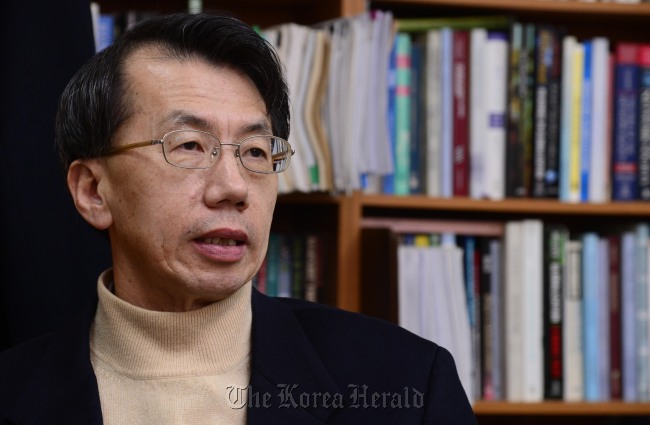It has been about a decade since hallyu, the Korean pop culture wave, emerged as a buzzword not only in showbiz but in society in general.
Korean entertainers are treated as VIPs overseas and Korean films, television dramas and pop songs are a major force in the nation branding of the country. Now, people from countries where Korean pop culture is popular are visiting Korea to see the places they have seen on TV, breathe the same air as their favorite celebrities and even learn the Korean language to better understand Korean culture.
“Before hallyu, people associated Korea with the Korean War, poverty and at the most, labor-intensive industry workers,” said Park Gil-sung, a professor at Korea University and chairman of the World Association for Hallyu Studies.
Korean entertainers are treated as VIPs overseas and Korean films, television dramas and pop songs are a major force in the nation branding of the country. Now, people from countries where Korean pop culture is popular are visiting Korea to see the places they have seen on TV, breathe the same air as their favorite celebrities and even learn the Korean language to better understand Korean culture.
“Before hallyu, people associated Korea with the Korean War, poverty and at the most, labor-intensive industry workers,” said Park Gil-sung, a professor at Korea University and chairman of the World Association for Hallyu Studies.

“But after hallyu, people started receiving new information ― Korea is now a dynamic country of great pop culture, food, and even more, with great products,” he said. “The fact that an increasing number of people are learning the language, the essence of a culture, for the sake of their understanding, not business purposes, is very encouraging,” he said in an interview with The Korea Herald held at his office in Seoul on Feb. 5.
His association on Jan. 28 held an inaugural seminar in downtown Seoul during which scholars from nine countries, where the group has branch offices, as well as field experts, policy makers and businessmen shared their ideas, knowledge and experiences with hallyu. The study group, which already has a presence in Sweden, Israel, Austria, U.S., Canada, Indonesia, Malaysia and Thailand, is planning to publish a relevant journal in the latter part of 2014. It also plans to expand to three more countries ― New Zealand, Taiwan and China.
Park said hallyu had become a phenomenon and that it was time that scholars started studying it as an academic subject to ensure its longevity.
“All members of the organization have been delving into hallyu. They have written about it and conducted knowledgeable research,” Park said. At the seminar, the participants shared the understanding that hallyu was perceived differently according to the cultural backgrounds of the people and decided to intensify their studies in the areas of defining hallyu, user analysis and others that will contribute to the “sustainable growth of hallyu.”
Park said the reasons people liked Korean cultural products were different but there were certain commonalities.
“At a time when American and Western cultural content are dominant ― smothered with sex, violence and other stimulating factors ― Koreans’ content is relatively mild and traditional. Koreans still respect family values, something that is greatly welcomed in many parts of Asia and the Middle East,” he said.
Whether hallyu will be just another fad or a long-lasting cultural influence is yet to be seen, but Park seemed confident.
“I think hallyu could become a stepping stone for achieving world peace. In that way, it will last for a long time,” he said.
Park quoted a study by Professor Nissim Otmazgin of the Hebrew University of Jerusalem, who observed hallyu becoming a bridge between two disputing parties.
“In one of our interviews, a 22-year-old Palestinian female student told us that the first time in her life she made friends with an Israeli girl was with someone in a Korean language class she attended because of her interest in hallyu. Although they might live a few minutes’ walk from each other in neighboring streets, they needed the Korean class to meet,” Otmazgin told The Korea Herald.
“I think the same could be applied to the two Koreas. Everyone knows that North Koreans secretly like South Korean cultural content. It could be a tool for peace on the Korean Peninsula,” Park said. “That’s not something any politics, business or anything else can easily do,” he said.
By Bae Ji-sook (baejisook@heraldcorp.com)
-
Articles by Korea Herald





![[Herald Interview] 'Amid aging population, Korea to invite more young professionals from overseas'](http://res.heraldm.com/phpwas/restmb_idxmake.php?idx=644&simg=/content/image/2024/04/24/20240424050844_0.jpg&u=20240424200058)












![[KH Explains] Korean shipbuilding stocks rally: Real growth or bubble?](http://res.heraldm.com/phpwas/restmb_idxmake.php?idx=652&simg=/content/image/2024/04/25/20240425050656_0.jpg&u=)

